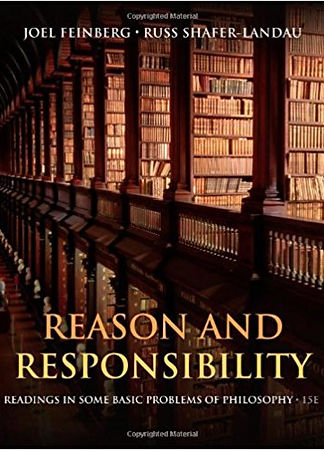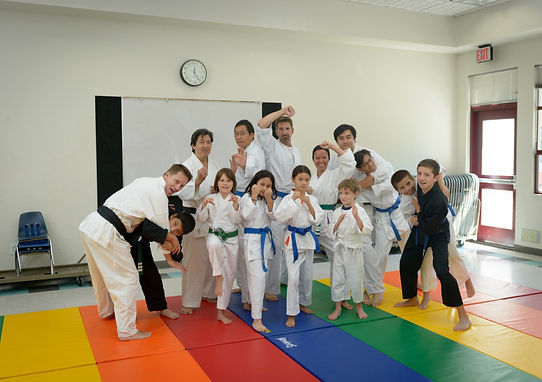NATHANIEL CHIA
SENIOR PORTFOLIO
College and Career Readiness
Mentor: Brendan Murray
I have been volunteering as a coach at E-Karate, under the supervision of Brendan Murray, the founder of E-Karate. Through the 8 years that we have worked together, Brendan has been a coach, a teacher and a friend to me. He has helped me grow in many different areas related to being a good coach and friend to the kids that participate in E-Karate. I have been practicing different forms of martial arts since I was 3 years old, but I first met Brendan when I 10 years old, when I joined E-Karate. Because I wasn't very familiar with interacting with kids with special needs, Brendan was with me every step of the way, and pushed me to put serving the kids in front of my own comfort.
Brendan showed me that E-Karate was not a typical martial arts class, because it focused less on martial arts and more on the inclusion of the kids with special needs. He taught me that the children with special needs require a lot more encouragement and praise in order for them to persevere through things like pushups or conditioning. I was taught that I also needed to have a lot more patience with them as well. The sporadic behavior of some of the kids (such as interrupting, or yelling in the middle of a conversation, or just suddenly giving up) was very difficult to handle at first but I was taught that in order to help the kids maintain their focus and help them participate, I had to take interest in them, in their lives and their hobbies, and really talk to them. Over the years, Brendan has showed me through example about what it means and takes to be a leader. He showed me that empathy, humility, patience and compassion were far more important than being driven, or independent.
Outside of being a coach, Brendan has been willing to help me grow in my martial arts skills as well. Because Brendan practices a different style of martial art, the techniques I learn from him are a lot different from how I was trained. He has sharpened my skills in sparring and self-defense, by practicing with me, and teaching me different techniques, like the foot-sweep.
Intellectual Challenge: Philosophy 100
The biggest intellectual challenge that I faced in high school was when I took Philosophy 100 with Professor Jeremy Ball.
While a class might be a challenge to someone because of the quantitative content (such as Statistics where there are many different formulas and variables), Philosophy was a challenge to me because of the qualitative content of the course. Although there was not as much content of the course, the concepts themselves were difficult to understand and grasp. For example, a difficult concept to grasp for me was John Locke’s Wax argument, which argues that there is a matter invisible to human sense, that holds objects together. Because properties of Wax shift (solid, liquid, hot, cold), there is no defining wax trait, and therefore, it is impossible to define wax, because it can be completely changed. Therefore, there must be some sort of invisible matter that counts as “the wax”. To me, the argument was a very difficult concept to understand and apply to my assessments, because of it's abstract nature, and how it questioned the validity of human sense and reality. Despite a lot of individual studying, I got two C's on my first few tests.

It was only until the last part of the semester did my grades really begin to get higher. My first paper got a 10/10, I got a 25/25 on the second part of my paper and I got a 19/20 on my final exam, landing me with a B- in the course at the end of the semester. The biggest factor for these changed grades was that I began to ask other people for help. Both versions of my paper were peer reviewed from multiple people, both inside and outside of the class. I realized that I couldn’t possibly do well in a Philosophy class with just my own capabilities, because Philosophy requires multiple opinions and perspectives in order for a piece of work to be thorough and complete. When I asked other people to peer review my paper, the content of the paper itself being criticized was more important than the structural elements of the paper, such as grammar or sentence structure, leading me to often scrap the whole paper and reconstruct a new argument. This is because if certain steps or processes were wrong in the paper (such as the reasoning for exactly why determinism conflicts with moral responsibility) the paper becomes invalid.
Although I do not plan on going into Philosophy, the study skills and learning techniques that I picked up in that class have helped me up to this point. The texts we read in Philosophy were really confusing and dense, so I learned how to annotate, summarize and paraphrase texts for my own personal understanding (as opposed to just pandering to the teacher when they ask us to annotate). I am also learning how to swallow my pride and insecurity, and ask for help from peers and teachers, so I can not only understand the content but apply it under assessment. Senior year has been the first time I have ever studied with other people, and really depended on others to help me improve my work, and I intend to really engage with other students in college, so I can overcome challenging coursework
Feedback: UrbanPlan
An instance where I took Feedback and used it to improve my work was during UrbanPlan, a group simulation about city planning, from the perspective of a private developer. Each group was given the same five and a half block community to redevelop, while meeting certain needs (such as making money for the city, or creating jobs for the residents in the community). In my group, I was the Site Planner, meaning that I had the responsibility of determining the orientation and position of every building in the community, while considering everyday concerns. My job would involve things like predicting the flow of traffic, making sure the community is well lit and no extreme shadows are cast, or making residential areas accessible to surrounding buildings (such as schools or business districts).

During the development process, economists came in weekly to examine our redevelopment plan and gave us advice and feedback about what we needed to change. During these sessions, I was given advice about things I had never previously thought of, like making parking accessible from certain streets, or how the placement of a park can be bad for the community rather than good. Additionally, I was also able to get feedback from the members of the group. They would ask me questions to prepare me for the presentation, and point out parts of the site plan that might be points of concern, so that I would note it in front of the city council.
Besides the technical aspect of the job, I got a lot of feedback from my group about the presenting part of the project. Our group ran through the presentation about 5 or 6 times, and each time I presented, my group members had constructive feedback to give to me. For example, while I was presenting my part of the project, I would tend to speak very fast, play with my hands, and sway side to side, due to me being nervous. My group members pointed it out, and helped me work through my piece.
The constructive feedback I received from both the economists and my peers allowed to me to alter and reconstruct my part of the final presentation, making me a lot more informed, prepared and confident during in front of the city council we were presenting the site to. I was able to answer questions asked by the city council, such as a question about the focal point of the city, because I was asked similar questions by my peers and the economists.
